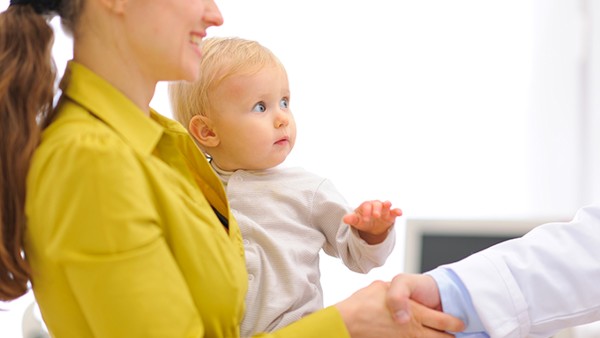Observe 4 points to determine your baby鈥檚 hepatitis B

What is Hepatitis B?
Hepatitis B is a potentially life-threatening liver infection caused by the hepatitis B virus (HBV). It is a major global health problem, with an estimated 257 million people living with chronic hepatitis B infection worldwide.
HBV is transmitted through contact with infected blood or other bodily fluids. This can happen during childbirth, through sexual contact, or through sharing contaminated needles or other drug paraphernalia.
Newborns and young children are at the highest risk of developing chronic hepatitis B infection. This is because their immune systems are not fully developed and they are more likely to be exposed to the virus.
Symptoms of Hepatitis B in Babies
The symptoms of hepatitis B in babies can vary depending on the age of the child.
Newborns may have no symptoms or they may have mild symptoms, such as jaundice, dark urine, and fatigue.
Older babies may have more severe symptoms, such as abdominal pain, vomiting, and diarrhea. They may also have jaundice, dark urine, and fatigue.
Diagnosis of Hepatitis B in Babies
Hepatitis B is diagnosed with a blood test that checks for the presence of HBV antibodies. If a baby has HBV antibodies, it means that they have been infected with the virus.
Treatment of Hepatitis B in Babies
There is no cure for hepatitis B, but there are treatments that can help to manage the infection and prevent it from causing serious liver damage.
Antiviral medications can help to reduce the amount of virus in the body and prevent it from damaging the liver.
Interferon is a medication that can help to boost the immune system and fight the virus.
Liver transplant may be necessary in cases of severe liver damage.
Prevention of Hepatitis B in Babies
The best way to prevent hepatitis B in babies is to vaccinate them. The hepatitis B vaccine is safe and effective, and it can protect babies from infection for life.
The hepatitis B vaccine is given in a series of shots. The first shot is given at birth, and the second and third shots are given at 1 and 6 months of age.
4 Points to Determine Your Baby鈥檚 Hepatitis B
If you are concerned that your baby may have hepatitis B, there are four things you can do to determine if they have the infection:
1. Check for symptoms. The symptoms of hepatitis B in babies can vary depending on the age of the child. Newborns may have no symptoms or they may have mild symptoms, such as jaundice, dark urine, and fatigue. Older babies may have more severe symptoms, such as abdominal pain, vomiting, and diarrhea.
2. Get a blood test. A blood test can check for the presence of HBV antibodies. If a baby has HBV antibodies, it means that they have been infected with the virus.
3. Talk to your doctor. Your doctor can help you to understand your baby鈥檚 symptoms and recommend the best course of treatment.
4. Get your baby vaccinated. The hepatitis B vaccine is safe and effective, and it can protect babies from infection for life.
Conclusion
Hepatitis B is a serious infection, but it can be prevented with vaccination. If you are concerned that your baby may have hepatitis B, talk to your doctor.
The above is all the content that the editor wants to share with you. I sincerely hope that these contents can bring some help to your life and health, and I also wish that your life will be happier and happier.
Topic: #to #points #observe














